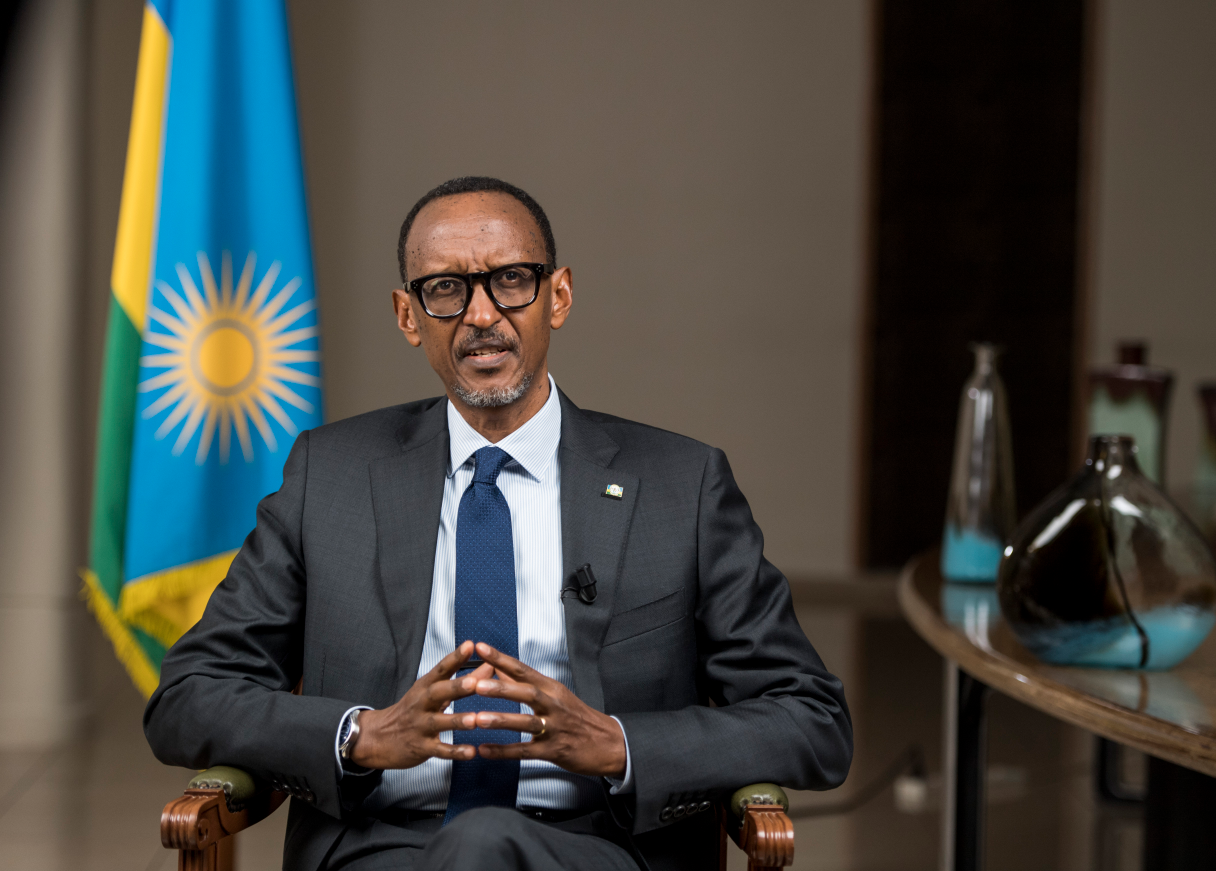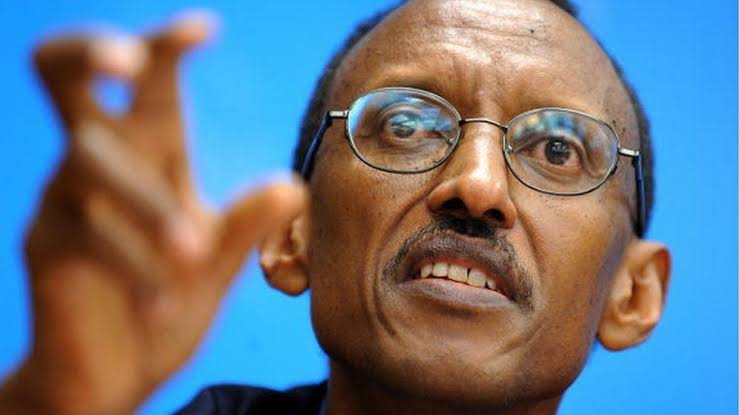 If you do not understand how a leader can win a landslide victory with more than 99 percent of the vote, you do not understand Rwanda.
If you do not understand how a leader can win a landslide victory with more than 99 percent of the vote, you do not understand Rwanda.
President Paul Kagame will serve another term in office after securing 99.15 percent of the 7,160,864 votes cast in the July 15 presidential polls. Voter turnout was 98 percent.
To comprehend the choices Rwandans made at the polls, it is necessary to understand where Rwanda is today in relation to its past.
Where once annual income per capita was as low as $130, today it’s nearly $1,000. Life expectancy has risen from a low of 40 years to 67 years. Currently, 83 percent of Rwandans can read and write, 91 percent of women give birth in health centres, and 77 percent of homes have access to electricity. Children receive free primary and secondary education in government schools, and farmers can access subsidised fertilisers.
Kagame and the ruling party, Rwandan Patriotic Front (RPF), are universally acknowledged as the architects of this progress. They are pursuing a vision of a developed Rwanda with world-class infrastructure, high standards of living and a welfare system that cares for its most vulnerable.
Rwanda’s prosperity and unity have been a long time coming.
The Belgian colonial policy of “divide and rule” led to the 1959 exile of tens of thousands of mainly Tutsis, fleeing violence driven by a Hutu supremacist ideology supported by both the church and the colonial state.
Rwanda’s two post-independence governments, first led by Gregoire Kayibanda and then by Major-General Juvenal Habyarimana, did little to improve national unity and development.
Both administrations were characterised by explicit discrimination against a section of citizens, romanticisation of subsistence agriculture, corruption, insularity, and a general lack of economic development.
Even worse was the denial of citizenship for Rwandans who had fled state violence. Refusing to allow the refugees to return, President Habyarimana famously remarked, “Where would we put them? Rwanda is like a glass full of water.” As a result, the refugees, under the banner of the RPF, forcibly entered Rwanda on October 1, 1990.
Led by Kagame, the RPF defeated the Habyarimana regime and stopped the 1994 genocide against the Tutsi. Once in power, Kagame, the RPF, and its coalition partners began rebuilding the nation.
By 2003, when the first post-genocide elections took place, gross domestic product (GDP) had reached $2.1bn from a low of $753m in 1994. A transitional justice process was under way and Rwandans were slowly learning to live together. Kagame won that election with 95 percent of the votes.
He then won the subsequent elections in 2010 and 2017 with even higher margins.
While some foreign observers acknowledge the development Kagame has brought about, they doubt his popularity and criticise the exclusion of certain darlings of the Western media from the elections. To those critics, I ask, should Rwanda apply electoral laws selectively?
Victoire Ingabire, one of Paul Kagame’s most vocal critics, fell afoul of a law banning those sentenced to prison terms exceeding six months from standing for electoral office. She was convicted in 2013 by the Supreme Court of conspiracy to cause insurrection and genocide denial and was sentenced to eight years in prison.
Ingabire wasn’t the only candidate denied the opportunity to run for the presidency. Six other prospective candidates – Herman Manirareba, Innocent Hakizimana, Fred Sekikubo Barafinda, Thomas Habimana, Diane Rwigara, and Jean Mbanda – were denied due to their inability to submit the necessary electoral documentation to the National Electoral Commission in time.
Even if they had run, the results likely wouldn’t have changed. The trust Rwandans have in Kagame and the RPF remains rock solid.
The most recent election results are a riposte to the cynicism, pessimism, and, dare I say, racism that seems to envelop African politics. Through these polls, Rwandans have rejected two dominant narratives: that African leaders cannot deliver for their people and that longevity in political leadership is always a bad thing.
The biggest challenge that Kagame and the RPF will face in the next five years is living up to their own development agenda. They have promised Rwandans more prosperity, and with a generation born after 1994 entering the workforce, reducing youth unemployment will be crucial.
Generation Z demands the well-paying jobs and ever-increasing living standards that the RPF promised them. Creating an economy that keeps young Rwandans engaged will be Kagame’s biggest task, but Rwandans trust that he is up to it.
Related posts
Global | Didi Angaye Earns A Distinction Award, Another Feather To The Cap
On a bright sunny day, in the month of July, 2024, the prestigious Staffordshire University located in the West Midlands of England organised its Award giving and Graduation ceremony to honour graduates of various educational programmes and courses which it offers. Didi Timipah Angaye,…
Olu Of Warri Bags Award In UK, Wife Advocates Return To Cultural Values
The Olu of Warri, Ogiame Atuwatse III, has received the Leadership and Community Development award at the 14th African Achievers Awards (AAA), which took place at the Parliament House, United Kingdom. The award was presented by a member of the House of Lords, London, Rt…
Brit Awards | Asake, Burna Boy And Other ‘New Cats’ Get Nominations
Nigerian singers Burna Boy, Asake, and Rema have been nominated for the 2024 Brit Awards. The nomination list for the annual music awards show was released on Wednesday 25, January 2024. Burna Boy and Asake made the ‘Best International Artiste’ category, while ‘Calm…
Brit Awards 2024 | The Full List Of Artist(e)s
This year’s Brits nominees have been revealed ahead of the ceremony in London in March. Dua Lipa is the first star confirmed to perform at the event – but how many awards is she up for? Musicians including Raye, Central Cee, J Hus and Blur are also…
Despite Increased Transfer Volume And Institutional Adoption, Bitcoin Stays Below $60K
Bitcoin’s price hovers around $59K as increased transfer volume indicates a stable demand among investors. CryptoQuant data indicates buyers are absorbing the panic selling pressure around the $57K price level. Bitwise’s latest report suggests that institutional investors are still buying Bitcoin despite the recent price…
Traders Focus On Meme Coins As Bitcoin, Ethereum And XRP Erase Recent Gains
Bitcoin, Ethereum and XRP dip under key support levels at $60,000, $2,600 and $0.60 respectively. Tron ecosystem’s meme launchpad SunPump generates over $1.1 million in revenue within twelve days of its launch. Tron network daily revenue reached a record high of $26.83 million on Tuesday,…
Top 10 Cryptocurrencies To Invest in January 2024
-Michael Adams From Bitcoin and Ethereum to Dogecoin and Tether, there are thousands of different cryptocurrencies, making it overwhelming when you’re first getting started in the world of crypto. To help you get your bearings, these are the top 10 cryptocurrencies based on their market…
The Risk And Reward Of ChatGPT In Cybersecurity
Juan is an experienced CTO with a demonstrated history of working in the computer and network security industry. He is an information technology professional skilled in SAP and Oracle applications, computer forensics, vulnerabilities research, IPS/IDS and information security. Unless you’ve been on a retreat in…











